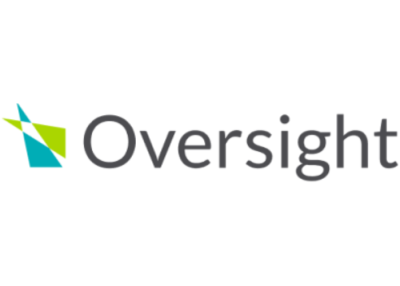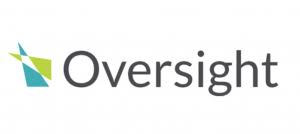Tuesday, June 10th, 2025
9:00 am - 9:30 am
EST
Creating an Award-Winning Culture and Employee Experience at Novo Nordisk GBS
John Dawber -
Corporate Vice President & Managing Director, Global Business Services,
Novo Nordisk
Novo Nordisk GBS aspires to the employer of choice and recognises that employee engagement, people development, and cross-functional collaboration are crucial to creating a best-in-class, high-performance workplace culture. 92% of the GBS’s employees are happy with the leadership, with trust in the leadership’s vision.
John Dawber, Corporate Vice President & Managing Director – Global Business Services, Novo Nordisk, shares more on how he was able to drive a positive employee experience, stakeholder trust, and global process ownership through various initiatives.
• Developing different initiatives to encourage ownership and accountability and foster innovation and creativity
• Bringing attrition down to 6.5% in two years
• Sharing of best practices on how they successfully attracted and retained top talent
• Creating a diverse, inclusive culture where Everybody Matters

John Dawber
Corporate Vice President & Managing Director, Global Business ServicesNovo Nordisk

9:45 am - 10:30 am
EST
Finance Transformation in the Age of AI
Arindam Dutta -
Lead- Process Automation & AI Operations,
Ecolab
Stefan Markov - Head of Financial Shared Services, Experian
Sean Levy - Solutions Consultant, AppZen
When implementing AI many organizations use a piecemeal approach, where AI is adopted step by step to different sub-processes as and when needed (or budget allows). Unfortunately, this can create a messy outcome, with disparate systems and multiple solutions that don’t talk to one another. True AI transformation requires looking at the whole operating model and imagining how it can be completely optimized with the help of AI. In this session, we take the opportunity to envisage what true finance transformation looks like in the Age of AI and a roadmap to get there.
· Examining the impact and potential of AI on the finance operating model
· How work and people must change
· Building a transformation roadmap to get there
· Making your transformation human-centric
10:45 am - 11:15 am
EST
Shifting from Reporter to Predictor with AI and Data Analytics
Nathanael L’Heureux -
Chief Solutions Ambassador,
Oversight
Shared Services organizations are expected to deliver maximum value at minimal cost—but manual processes and static reporting make that mission harder every day. Traditional tools lack the speed and insight needed to identify and resolve risk at scale.
In this session, we’ll challenge the assumptions behind “good enough” reporting and show how AI-powered analytics can transform operational efficiency. You’ll learn how real-time risk detection and automated workflows are streamlining spend processes and enabling smarter, more proactive spend control while improving compliance across large, complex organizations. In this session we’ll discuss:
- Why static audits fall short in risk prevention
- How AI automates routine tasks to free up shared services teams for strategic work
- How to catch fraud and errors at the right time
- Why scalable, proactive risk detection is now a Shared Services imperative
11:30 am - 12:00 pm
EST
Simplifying Tax and E-Invoicing Compliance: How Shared Services Can Automate with Confidence
Robert Gallo -
Senior Account Executive,
Thomson Reuters
Tyler Massie - Senior Account Executive, Thomson Reuters
As global tax and e-invoicing mandates become more complex and enforcement intensifies — from real-time reporting to country-specific e-invoicing rules — many Shared Service Centers are realizing that manual workarounds and fragmented tools can no longer keep up. These outdated approaches increase the risk of errors, audits, and missed deadlines.
In this session, you’ll learn how modern, connected automation can help Shared Service Centers simplify compliance, reduce business risk, and gain better control over finance operations — without adding unnecessary complexity.
You’ll learn:
• Why traditional tools like OCR and RPA are no longer enough to ensure compliance
• How connected automation improves accuracy and reduces audit risk in AP and tax processes
• How SSCs can stay ahead of global mandates while driving efficiency and scalability
12:15 pm - 12:45 pm
EST
Making Change Count: Why the Majority of Your Memos Fail and How to Achieve True Stakeholder Engagement
Adam Holmes -
SVP Head of Strategic Operations and Global Communications,
Publicis Re:Sources
Most senior finance leaders are blind to a hard truth: their communications are failing. But how do we improve? We need to get back to the basics by speaking to those on the ground and the frontlines of our organisations and engaging with them authentically.
In this session, we’ll expose the common pitfalls that render your messages ineffective and demonstrate how to turn the tide. We’ll also give insight into what to do in the case of M&A activity, as change management can become even more difficult. We’ll focus on:
- The top 5 errors made in change communication.
- How to communicate change during M&A and transformation
- Authentically communicating with a global team; exploring how local language and cultural nuances count
- Making the Memo count – assessing finance leaders go from spamming to making memos less frequent and far more impactful



















